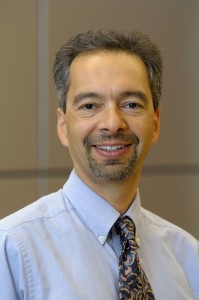
 The following is a blog post by Ran Libeskind-Hadas, R. Michael Shanahan Professor and Computer Science Department Chair at Harvey Mudd College, Co-Chair of CRA’s Education subcommittee (CRA-E), and former Computing Community Consortium (CCC) Council Member and Debra Richardson, founding Dean of the UC Irvine Bren School of Information and Computer Science and CCC Council Member.
The following is a blog post by Ran Libeskind-Hadas, R. Michael Shanahan Professor and Computer Science Department Chair at Harvey Mudd College, Co-Chair of CRA’s Education subcommittee (CRA-E), and former Computing Community Consortium (CCC) Council Member and Debra Richardson, founding Dean of the UC Irvine Bren School of Information and Computer Science and CCC Council Member.
Mayor Bill de Blasio announced this week that every public school in New York City- elementary through high school – must offer computer science courses to all students within ten years. It is estimated that fewer than 10% of schools in New York City currently offer a CS course and only 1% of students take such a course. CS will not be required of all students, but the opportunity to take a CS course will be available in every school.
According to an article in the New York Times, about 5000 NYC teachers will need to be trained to meet Mayor de Blasio’s initiative. As similar initiatives are adopted elsewhere, the demand for curricula and pre- and in-service teacher training will grow dramatically.
The computer science community must be proactive in developing curricula and training teachers for these initiatives. Good curricula and teacher training can showcase the intellectual beauty of our field, demonstrate its relevance to society, and provide students with valuable skills that they can leverage in their other academic subjects and use to express their creativity.
Getting this right requires that we invest seriously in computer science education research at the university level. We need high-quality research in computer science pedagogy and best teaching practices. We need excellent pre-service and in-service teacher training. We need to take a close look at what physics, mathematics, and other communities have done in education research and teacher training.
The Computing Community Consortium (CCC) will release a whitepaper later this fall making the case for computer science departments to invest in education research, describing some of the major intellectual challenges in the field, and proposing strategies for building strength in this vitally important field. Stay tuned!









